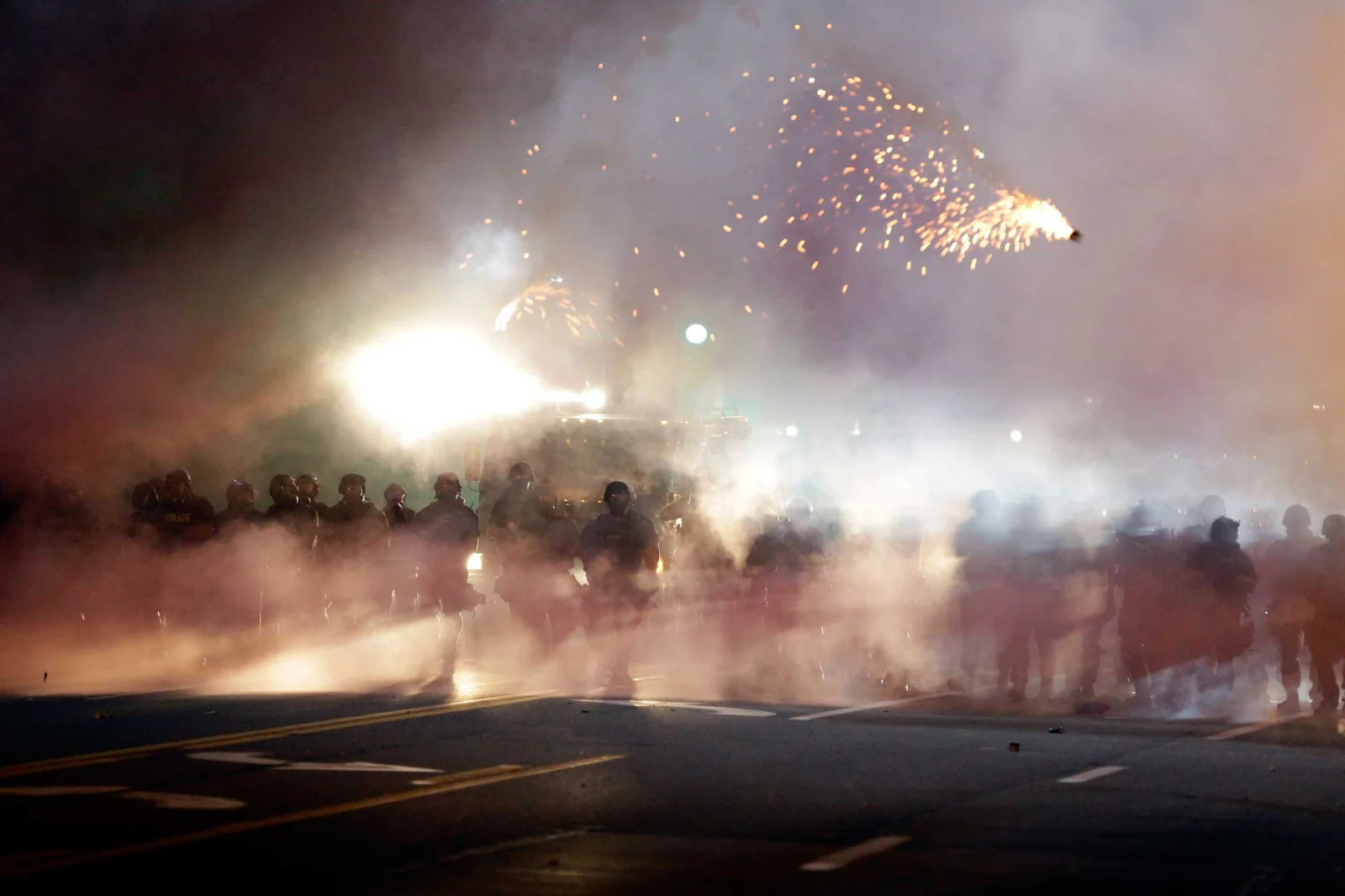Lethal in Disguise 2 presented in Geneva at the UN Human Rights Council
PRESS RELEASE
Following International Day in Support of Victims of Torture, Human Rights Groups Stress the Dangers of Crowd-Control Weapons and Urge the UN to Adopt a Treaty Prohibiting the Trade on Tools Used for Torture
“Less lethal weapons must be employed only when they are subjected to strict requirements of necessity and proportionality, and only in situations in which non-violent means have been exhausted,” warned Clement Voule, UN Special Rapporteur on freedom of peaceful assembly and of association. This week Voule highlighted the pervasive and global nature of human rights violations perpetrated by law enforcement using crowd-control weapons and reiterated his support for the growing calls for a Torture-Free Treaty.
At an event in Geneva at the UN Human Rights Council Monday, experts from Colombia, the UK, the USA, Indonesia, and Argentina presented the findings of the groundbreaking report Lethal in Disguise 2: How Crowd-Control Weapons Impact Health and Human Rights. The study released in March 2023 by the International Network of Civil Liberties Organizations (INCLO) and Physicians for Human Rights (PHR) in collaboration with the Omega Research Foundation details the dangers of the increasingly sophisticated and poorly regulated industry of less lethal weapons.
Since 2015, more than 119,000 people have been injured by tear gas and other chemical irritants during protests around the world, while at least 2,190 people have been injure by rubber bullets and other types of kinetic impact projectiles, according to the investigation with case studies from 13 countries. “As if these numbers weren’t alarming enough, we know they are bare minimum estimates because the use of crowd-control weapons and their resulting harms often go underreported,“ emphasized Laura Kauer García, the project manager on Protest Rights and Policing at INCLO.
In most of the cases covered in Lethal in Disguise 2, the lack of transparency in government investigations and limited accountability from law enforcement involved in the incidents perpetuate cultures of impunity and have a chilling effect on protesters. “Public and peaceful demonstration is considered a fundamental right in Colombia. However, the way in which law enforcement authorities respond to protest undermines the exercise of this right,” said Sofia Forero-Alba, a researcher at Colombian Human rights NGO Dejusticia. “Between April and December 2021, there were 116 eye injuries reported from the use of less lethal weapons against protesters and Dylan Cruz, a 19 year old protester, was killed by a bean bag in November 2019,” Forero-Alba added.
There is a growing momentum behind the calls for a global, legally-binding prohibition and human rights-focused trade control regime on law enforcement equipment to help prevent torture and other ill treatment and combat police abuse. In January 2023, over thirty civil liberties organization issued the Shoreditch Declaration announcing the beginning of globally coordinated activities to support a robust Torture-Free Trade Treaty. Last Friday, Volker Türk, United Nations High Commissioner for Human Rights, voiced his strong support stating he was “fully supportive of all efforts to limit trade in items that could be used for torture, including through a new international torture-free trade treaty.”
Internationally-traded law enforcement equipment is routinely used abusively against protesters, human rights defenders and discriminated-against groups, among others, during the policing of protests and in places of detention. A global, legally-binding prohibition and human rights-focused trade control regime on law enforcement equipment must be established to help prevent torture and other ill-treatment and combat police abuse.
A Torture-Free Trade Treaty would strengthen existing laws and efforts to prevent torture by closing a clear loophole in state practice which can lead to the facilitation of torture and other ill-treatment. It would make explicit states’ extraterritorial obligations related to the trade in police and security equipment. In the long term, it would also serve to highlight non-custodial cases of torture and cruel, inhuman and degrading treatment and its intersection with the right to freedom of peaceful assembly.
“Crowd-control weapons maim and kill while corroding basic civil liberties,” said Erika Dailey, director of policy and advocacy at Physicians for Human Rights (PHR). “Although the health and human rights harms are consistently under-reported, the medical evidence about the profound harms of these weapons is clear. Policymakers must act now to regulate and restrict the proliferation of these dangerous weapons, including through the passage of a Torture-Free Trade Treaty.”
Amnesty International, International Network of Civil Liberties Organizations (INCLO),
Physicians for Human Rights (PHR)
